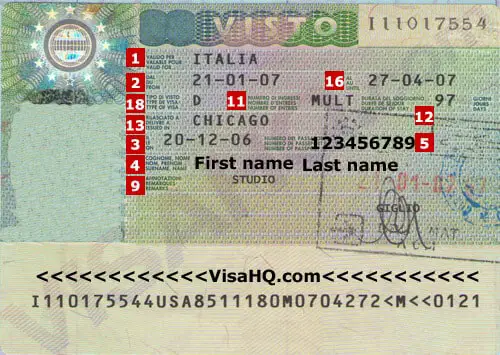
Learn all about Elective Residency Visa in Italy in this article.
Getting a Permesso di Soggiorno (Italian for “permission to stay”) in Italy does not qualify you for a visa or provide you with legal immigration status in the country. You will need a permanent immigration and visa solution in order to work and/or successfully reside in Italy (beyond the visa waiver/ESTA). Like in any nation, navigating the immigration laws of Italy is best done with the help of an experienced immigration attorney.
What is an Elective Residency Visa for Italy?
An Elective Residency Visa for Italy is a visa that allows people to live in Italy for a specific period of time, usually 6 months or a year.
It is an option for people who want to live in Italy but don’t have a specific reason for doing so (such as a job or family). To be eligible for an Elective Residency Visa, you must have a valid passport, proof of health insurance, and enough money to support yourself while in Italy.
The Italian long-stay visa category includes the optional residence visa.
This category of Italian visa is intended for foreign nationals who have decided to make Italy their permanent home and do not need to work in Italy in any capacity, be it as dependent employees, self-employed individuals, or internet workers, to support themselves.
To put it another way, if you want to get an Italian Elective Residency Visa, you can’t have a job. In fact, one of the requirements for this kind of visa is evidence that you have alternative means of financial support (such as through pensions, annuities, property income, income from joint stock or shareholding in a company, etc.).
What is O2 Visa for USA? Fees, Requirements, Process
Italy Immigration Process and Elective Residence Visa
Anyone planning to make Italy their permanent home may apply for a long-term stay under Italy’s optional resident visa program. Applicants must fulfill certain conditions before being considered, including providing evidence that they can support themselves without working in Italy.
Anyone hoping to apply must provide evidence that they have access to regular and stable financial resources totaling more than 32,000 EUROS and are expected to maintain this level of income in the foreseeable future, as well as documentation of their intent to buy or rent a home in Italy.
Asset-based income (such as annuities or pensions), property ownership, steady economic-financial activity, or other non-work-based sources of resources are all acceptable alternatives to employment as a source of financial security. The Elective Residency Visa essentially grants qualifying applicants indefinite entry into Italy.
UK Startup Visa Endorsing Bodies: All You Should Know
The Steps Involved May Be Summed Up As Follows:
-
Elective Residence Visa
You must submit an application and supporting materials to apply for the optional resident visa. The Consulate may issue the visa in as little as 90 days, but in practice, it takes anywhere from four to eight weeks to complete, depending on the Consulate’s backlog, the applicant’s nationality, and the time of year.
The applicant must provide proof of portfolio assets. The Consulate may ask for actual documents showing your current bank, investment, or social security balances. Be aware that your current or past job has no bearing on your account balance. Italian authorities will only award a visa if applicants can prove they have a substantial quantity of money on hand. However, this is no guarantee since each Consulate analyzes visa applications independently and has the option to make any further requests.
-
Application for a Resident Permit
Applicants who have been granted an Elective Residence Visa may visit Italy and apply for a Residence Permit (known locally as a “Permesso di Soggiorno”) within eight days of their arrival. Any Post Office will issue it upon submission of the appropriate form and required documentation. After an application is submitted to the Post Office, a receipt will be issued immediately that may be used as temporary permission to stay.
Following submission, the Post Office will transmit the application to the appropriate Police Department, which will then issue a summons to the applicant several months later to appear for an identification (fingerprinting) and document collecting appointment.
The actual Residence Permit collection appointment may not occur for many months (again, depending on the municipality) after the identification appointment. After receiving the Residence Permit, the applicant will be considered legally established in Italy, and the immigration procedure will be complete.
Golden Visa France: Fee, Process, Requirements
-
Registration of Residency
To complete the application process (if staying in Italy for more than six months each year), the candidate must register their personal residential address in Italy with the Town Hall. Italians and other new immigrants are required to register with the city hall where they want to live, a step that is not always required in other countries.
Doing so is possible at the time the Residence Permit application is submitted. For reduced banking costs, vehicle purchases, enrollment in the National Health Service, parking permits in historic districts, and duty-free entry of personal goods, among other benefits, permanent residents must register their status.

Leave a Reply